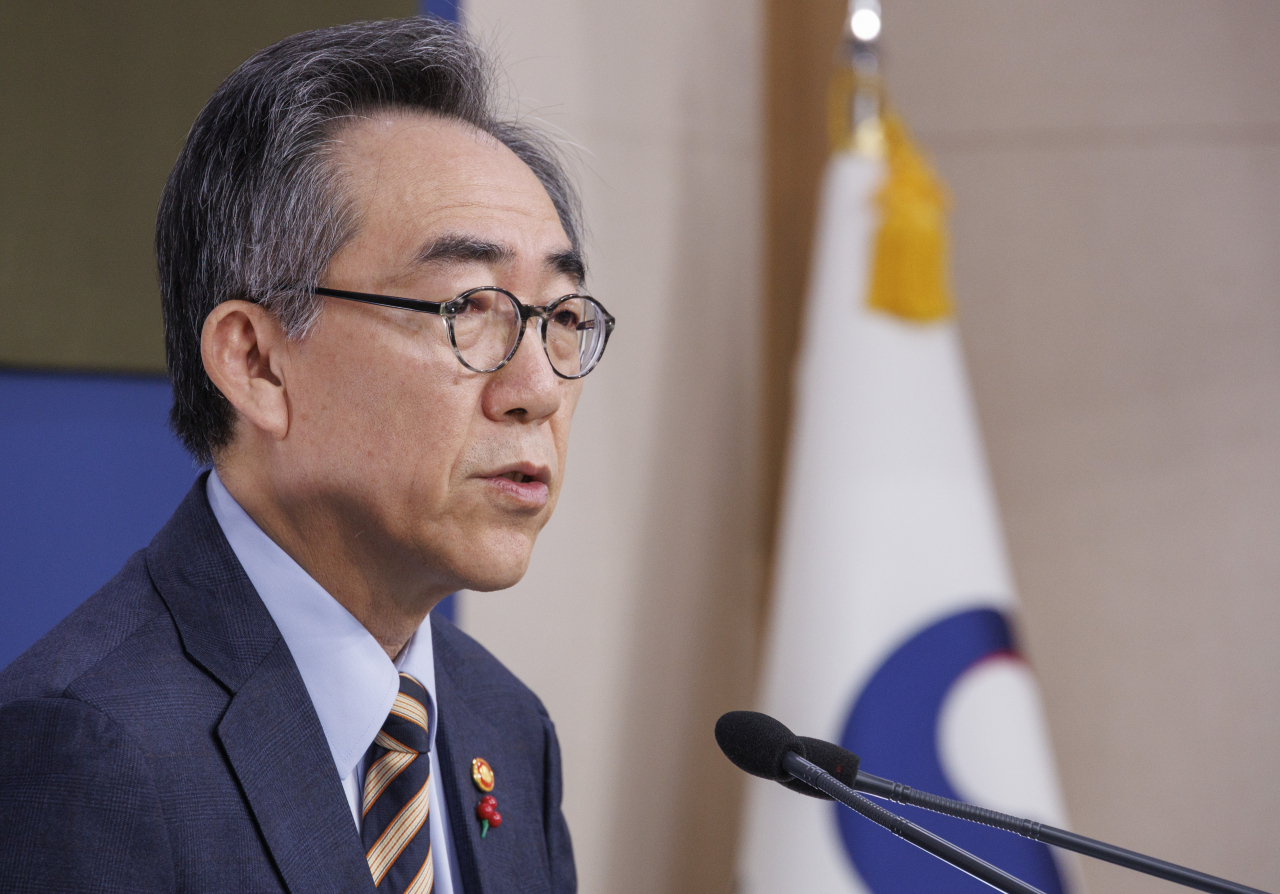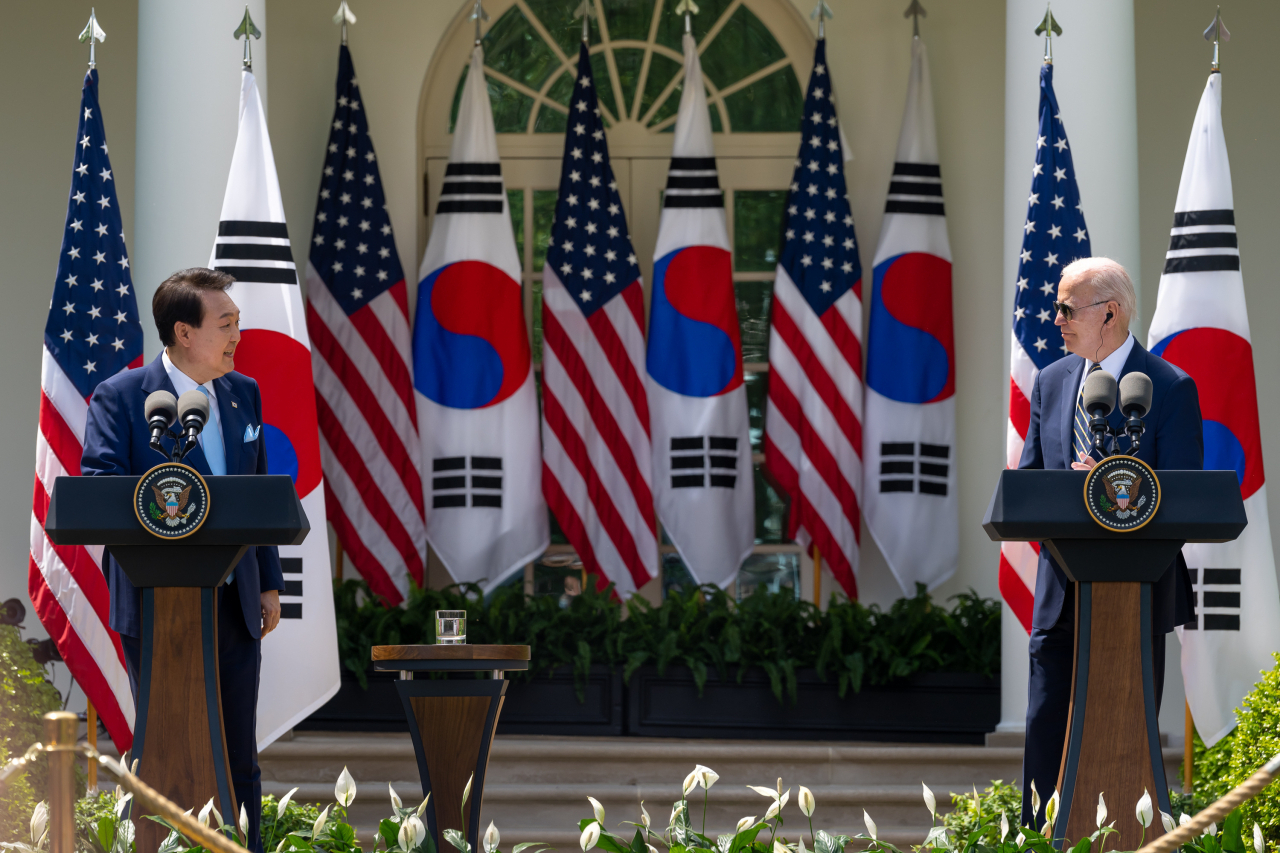Top priority for new FM: 'Economic-security integrated diplomacy'
By Ji Da-gyumPublished : Jan. 12, 2024 - 15:10

The primary strategic focus of the South Korean Foreign Ministry is to strengthen diplomatic capabilities to enhance economic security, especially at a time when security and the economy are intricately entwined amid the US-China tech rivalry, said newly appointed Foreign Minister Cho Tae-yul on Friday.
"I will seek to strengthen the capabilities of economic and security integrated diplomacy, aligning with the contemporary context where the US-China competition for technological hegemony has dismantled the traditional walls between the economy and security," Cho said in his inauguration speech.
Cho added that he would establish a working system and organizational culture that facilitates this enhancement to implement this task, which he intends to prioritize during his term.
Cho underscored that Korea finds itself in the "new geopolitical landscape where security, the economy and technology are intertwined, and where there is an escalating rivalry between liberal and authoritarian countries."
The situation has made the traditional approach to diplomacy, in which economic and security issues were addressed separately, far more challenging.
"As a result, we find ourselves in a world where the structural challenge lies in the inherent difficulty of pursuing interests without due consideration for values," said Cho, who has extensive expertise in bilateral and multilateral diplomacy in economics and trade.
During a televised press briefing following his inauguration ceremony, Cho also emphasized that Korea also faces diplomatic circumstances where a change in diplomatic strategy and approach is unavoidable.
Against that backdrop, Cho explained that he sees Korea "not as being in a game that will conclude in the short term, but rather in a long-term game."
"Essentially, our fundamental survival strategy, in response to geopolitical shifts, centers on self-reliance," Cho told reporters during the conference.
Cho underscored that it is crucial to enhance our strategic autonomy by cultivating and improving technological capabilities and creating a conducive environment for self-reliance.
"The second aspect involves strengthening international solidarity primarily centered around the alliance (with the US). I believe that international solidarity, grounded in self-reliance and alliance, is the key solution," the foreign minister said.
"This entails reinforcing ties with the US, even as relations intensify, and causing some discomfort in South Korea-China relations."
Cho also brushed aside criticism over the asymmetry between South Korea's investments in the US and the US' investments in South Korea.
"We actively pursue investments in the United States based on our assessment that it aligns with our national interests," Cho said when asked whether South Korea receives reciprocity from the US for its investments. "Our engagement is not a result of the US, our ally, making demands."

Structural challenges with China, Russia
The new foreign minister also said that the "external geopolitical environment has rendered Korea-China relations more challenging."
Numerous challenges currently impacting the South Korea-China relationship can be attributed to a combination of geopolitical environmental challenges, the ripple effects of the US-China strategic competition, and complications in the international economic order resulting from disruptions in the supply chain.
"As these challenges are beyond our sphere of control, we will work diplomatically towards minimizing constraints within the environment," Cho told reporters.
Cho expressed that his primary concern lies in the "significant deterioration of mutual emotions and perceptions among the citizens of both countries over the past few years, with little indication of improvement."
However, there are numerous areas with potential for collaboration, spanning across the economic sector, and in the humanities and people-to-people exchanges.
"Therefore, I believe it is crucial to focus on these fields, gradually building visible accomplishments and pursuing substantive cooperative projects to enhance trust," Cho remarked.
"Setting expectations too high in challenging situations can lead to significant disappointment. Hence, I think it is important to lower expectations and, step by step, start with small tasks, working towards the future."
Cho said Korea-China relations have witnessed remarkable progress in terms of speed and scale over the past 30 years.
"However, I believe it is time to push for policies with a focus on how much the two countries can accumulate trust and how to foster sustainable relationship development, shifting our focus on the mere evaluation of speed and scale."
Regarding Korea-Russia relations, Cho highlighted that the strained ties, resulting from the war in Ukraine, are inherently constrained. He emphasized that achieving tangible results in this context is challenging, regardless of any actions taken.
"Therefore, I have stated that we will manage our relationship stably based on the principles and criteria rooted in our values and national interests. Honestly, that is a realistic goal we can pursue," Cho said.
"Given that the fundamental causes (behind) the war in Ukraine remain unresolved, expecting a groundbreaking development in our relationship would be strenuous."




















